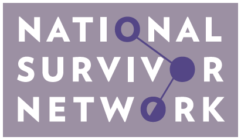July 26, 2022 | Category: Resources

First, ask yourself: Do I know how to do this thing? Agreeing to do something that you don’t know how to do adds to your stress levels and creates workplace friction when expectations are continually unmet. Being able to say “no” is an essential skill for a trauma-informed workplace. For many survivors, honoring our limits or saying “no” may have brought confusion, fear, harm, or consequences. It can be scary to say “no.” We worry that people will hear our “no” or see that we have limits and believe it was a mistake to hire us. We are afraid of being seen as incompetent or inexperienced since we are often “under the microscope” and worry that our missteps or example will be seen as reflecting on survivors. Saying when you can’t do something or need more support in order to do it is an essential part of healthy team dynamics, and allows your supervisor to ensure necessary work still gets done.

Second, consider: Do I have the capacity to do this? We are humans, not machines. It is impossible to continually take on new tasks while you’re still managing other tasks. If you are unable to do the work asked of you in the time allotted, it’s too much work. If you were hired for a 40-hour work week and keep getting assigned tasks with unrealistic deadlines, say so. If you receive a draft contract for work that you don’t believe can be done in the number of hours in the contract, tell them you will need more hours to complete the deliverables before you can sign.

Finally, remember that in a trauma-informed workplace, it’s okay to name the challenge. Sometimes when trauma survivors have a history of people-pleasing, their supervisors might not even realize that is the reason for the unmet expectations. Naming the challenge can help you and your supervisor have discussions where you can collaboratively develop solutions. It can feel risky to name the challenge, but learning between supervisor and employee goes both ways. The Management Center has great resources on “managing up.” “Managing up” is a way to help your manager learn the best ways to supervise you in the workplace. Sharing what you need from your supervisor is one kind of “managing up.”
